Listen to the Podcast Here
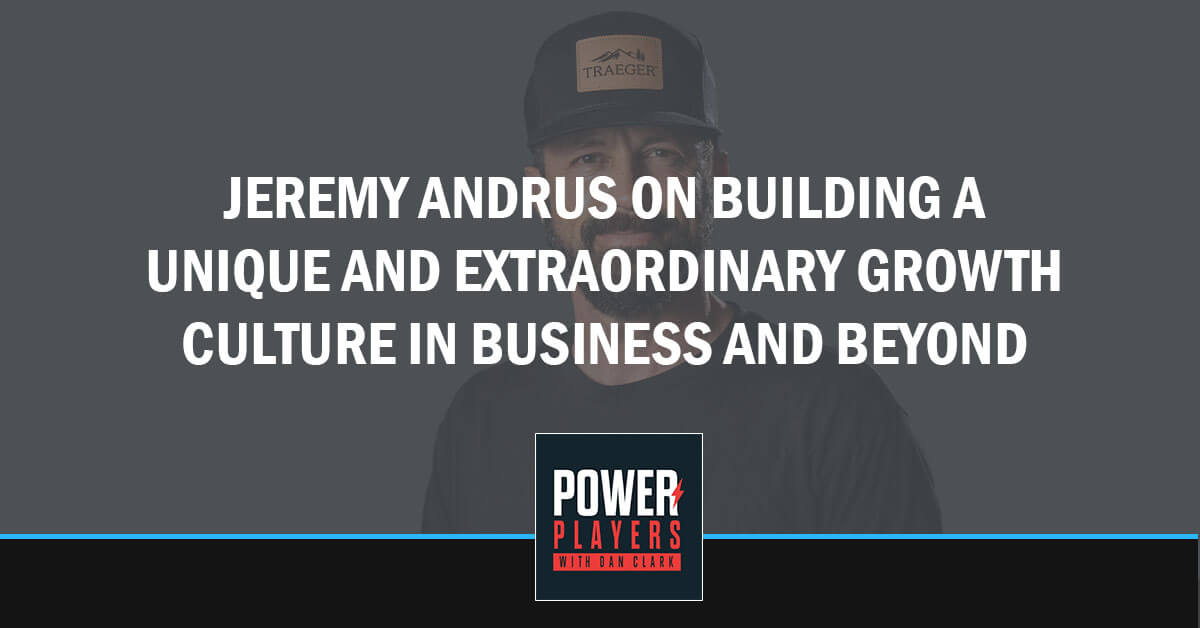
The most important task of a leader is learning how to build a growth culture. It is the ultimate secret sauce to having a happy and effective team and, by extension, a successful business. In this episode, Jeremy Andrus sits down with Dan Clark to share his understanding of what it takes to create a unique and extraordinary growth culture. Jeremy is President and CEO of Traeger Grills, the original wood pellet grill brand that has taken the outdoor cooking world by storm. The secret to their success? This glue called culture. Learn how he authentically built an environment for his employees to feel valued and motivated by tuning in. Plus, get solid advice on making a great business and being a great leader.
—
Jeremy Andrus on Building a Unique and Extraordinary Growth Culture in Business and Beyond
This is an interview with the CEO of Traeger Grills, Jeremy Andrus. Thanks so much for spending some time with me. In this episode, Jeremy Andrus, named EY Entrepreneur of the Year in 2016, who took Skullcandy from four employees to a $300 million enterprise and as CEO of Traeger Grills has grown it into a $500 million public company, shares his understanding of what it takes to build a unique and extraordinary growth culture where 75% of Traeger Grills owners have influenced the sale of one or more Traeger Grills and 25% have influenced the sale of three or more. Hold onto your seat. This is the most important and powerful master class on culture creation you will ever read.
—
Welcome to this episode. My guest is Jeremy Andrus. I know so much more about him than he would ever dream possible that in our short interview, I want to dive deeper than perhaps he usually does on these shows. I’ve had a chance to work with his wife, Kristin, whom we will also have as a guest because you are truly the epitome of a power couple.
She’s so philanthropic. She comes so often to our station here in the lifestyle segments, talking about what she does as the mother of your amazing children and mixing that with the work-life balance, which is not a work-life balance at all in the Andrus family. It’s not an either/or proposition. It’s an either/and. She truly has it all and does it all. I wanted to pay tribute to her because I know of her support with you all these years as you’ve worked your magic in the corporate arena.
I’m glad you start with that. Kristin is a force. I would be the first to acknowledge what we do as a team sport and what I do as a team sport. When you get such strength, support and energy from your wife and partner, that confidence pervades everything that we do together.
I wanted to start there because if you have a chance to go to a March-April 2019 article in Harvard Business Review, there’s an extraordinary article by Jeremy Andrus about unraveling, checking or fixing a toxic culture. You are the same offstage as you are on stage. My son has the privilege of working in Traeger Grills. Every single day, he calls us and reports on how much fun he had at work and how exciting it is. I’ve met so many of his colleagues. Truly, in Traeger Grills, your culture is the most unique culture I’ve ever experienced, where everybody loves to come to work.
I told my son I was going to kid you that with all of his benefits with travel, golf passes and ski passes and if he could pass those onto me, I might not even stay at home for six weeks and just use my Traeger benefits. You’ve created a culture. I want to take us back in a nutshell. Give us an insight into how you started going to Harvard Business School and where in your journey you learned the significance of what Peter Drucker made famous. “Once you get the culture right, the rest of the stuff takes care of itself.”
I wish I had learned it a long time ago and at Harvard Business School. There are things that you read in case studies that you don’t truly understand until you are building yourself. I always wanted to go to Harvard Business School and be an entrepreneur and CEO. I eventually got into Harvard Business School. I got rejected initially, kept grinding and got in. I went out into the workforce. I was an entrepreneur. It’s very easy for a career to be all about you. It’s inherently a self-serving and self-centered thing. We see the world through our lens and I was no different.
I wasn’t a bad person, but it was about me. I wanted to win, be successful and pay off the Subaru in business school and some of my day trading debt as well. I ground hard. As I was an entrepreneur and building a business, I believed in building culture because I thought that created a great business outcome. I learned along the way. I’ve learned at Traeger as we went through some hard things that you build great culture because it’s the right thing to do and the right way to lead. I remember being struck by Clayton Christensen, who was a professor at Harvard Business School and was voted Top Business Mind in the World for multiple years.
He wrote the book How Will You Measure Your Life?.

Building A Growth Culture: There are things that you read in case studies that you don’t truly understand until you are building yourself.
It’s interesting because I got to a point where I felt like basic needs were met and the career wasn’t that satisfying to me. He makes a statement that being a great leader or manager in business is noble because of the impact that you have on other people. It’s not about W-2 making paycheck every other week. When they come in and give them an environment that helps them become their best self, they’re not just great at work but all of the personal attributes that you learn.
We spend a lot of time working through adversity and being stretched, supported and developed. All of those things influence who you are and who you become. That was powerful for me. I took that to heart. I had some hard experiences at Traeger early on. What I realized is that when you authentically build a place that makes people feel valued, they do create work because they don’t want to disappoint. They feel that you care for them. Caring for someone is different than aligning economic interests. I’m not saying that’s wrong but I have found that when I do it authentically, people feel it.
I don’t have a career anymore. I do this for fun every day. I can’t wait for Monday morning to roll around. What I love about it is that I get to go spend time with people I care about. I would do anything for them. Your son is an amazing human being. He would do anything for Traeger. That’s this very virtuous way to live a life where what brings you together is a for-profit organization but what binds you together is this feeling that you’re in it together.
A national survey reports that 80% of people are not working in their dream job. Most people hate their jobs. They only look forward to Friday instead of Monday. They think they’re paid by the hour when in reality, we’re paid for the value we bring to that hour. In your Harvard Business Review article, one thing of many that jumped off the pages was that your culture has nothing to do with bending metal and the mechanical operation of a grill. It has to do with cooking and food. Food is one of our love languages as it is in my family culture. We gather around that. We need to talk on another day. I want to have him and his wife Kristin at the same time.
She’s an amazing cook.
I know. My wife watches your chefs. You’ve made them superstars. For our Christmas family feast with family members flying in from out of town, we go to Provisions and buy an 18-pound Wagyu brisket and all of the side dishes. Your culture truly is about having people love to come to work because it’s about cooking and food. Let me ask you to go back to the beginning days quickly. You started at Skullcandy when it was $70 million a year and took it to $300 million.
Skullcandy was $500,000 a year. It was a startup.
In eight years, you took it to $300 million and then went public. Traeger is the second company you’ve taken public. This is my question. When most companies go public, they lose their culture. You’ve been able to maintain it. Please take us back to the transition from Skullcandy to investigating time and time again the Traeger offer, looking to buy into a company. Take us back to that first experience when you went to Oregon in 2014. The truck is on fire and you’re truly afraid for your life. Put that in a nutshell so we can dig deep into how much culture means to you.
You build great culture because it’s the right thing to do. It’s the right way to lead.
First of all, you can go to any business school and read any case study but you learn by pattern recognition along the way and by doing. I was a young CEO at Skullcandy. I would be the first to acknowledge I didn’t know what I was doing.
Remember, Skullcandy at the time when he joined at $500,000 a year, they were making the headphone sets for snowboard helmets. He was the one that took it into the earplugs or earphones. That’s very important because, with his creative juices, we will not have a chance to even scratch the surface of his creative genius. I wanted you to know about the background of Skullcandy.
Creative genius is hiring amazingly creative people. We took Skullcandy public. It was a hard moment in my career. It was heavy and painful. I was a deer in the headlights. It went from being fun to being horrible every single day. I would put on my sunglasses in the office because I would be crying on the way there. It was so heavy for me. I left and said, “I’m not going to look back in my 30s and say that’s when I did my best work. ‘Years ago, that was great work.'”
I knew that although there were some things that we had done well, we had failed in a lot of ways. As a leader, I own those things. One of those was that we went public and I let the culture go. I never did it intentionally. There was never a moment where I said, “I’m going to prioritize public investors and the pressure that I feel under my feet for culture,” but that’s exactly what I did. I got to Traeger and the culture was toxic.
When you first bought in, you were a minority owner with the equity firm.
I was a minority originally with an individual, the owner of the business. I co-invested with someone else but we were junior partners to the operator. I showed up and loved the business from the outside and hated it from the inside out. I showed up and felt sick to my stomach every time I went to the office. I will tell you a couple of thoughts that I had early even before this incident happened. Nobody should feel sick to their stomach showing up to the office. People should look forward to going back.
That is the greatest legacy of a leader. You show up and feel good. It’s not to say it’s easy but you feel good about being there. I didn’t. We were able to buy the rest of the business. My partner and I bought 100% of the business. I set out to change not only the culture but the strategy and the business operations. I remember standing in front of the warehouse team saying, “We can’t scale this. We don’t have the capabilities.” We have built this very 1980s-esque supply chain.
That’s with your trucks and warehouse. All your competitors had already outsourced that. You’re stuck with this archaic model.

Building A Growth Culture: That’s like this very virtuous way to live life, where what brings you together is a for-profit organization, but what binds you together is this feeling that you’re in it together.
We stood in front of them and explained, “We’re making a change. We’re going to pay you severance in eight weeks if you haven’t found something else. UPS will hire all of you.” They became our great partners. The next time I drove to the office at 7:30 in the morning, I saw fire trucks, police cars and one of our eighteen-wheel rigs on fire. It’s not just on fire. This has been doused with fuel and it’s melting. Half of it is gone. It was an incident of arson.
The culture didn’t allow for this type of decision-making. It was a very scary day for me. I huddled with my team of executives and said, “What do you do when your truck is burning down and you want to get the company together but you fear for your life?” At that moment honestly, I would have turned in the keys and ran the other direction, notwithstanding the large investment that my family had made in the business. If you get into a moment like that, money doesn’t matter at all.
I looked at my executive team of four guys that I had hired from Skullcandy and said, “They quit their jobs to join me. I can’t leave.” It’s interesting because there were a couple of very significant lessons that came from this. One was I got six months beyond this when we controlled the business and we were rebuilding the team. I was having the time of my life. It was a dysfunctional company operationally but my team and I were having a good time. I said, “I’m glad I didn’t quit.”
I was closer to finding my way out and being on the journey to success than I knew at the moment that felt like it was deep and awful. The other was that I had been more involved in startups. In a startup, you build culture one hire at a time, even when it’s not deliberate. If you’re inherently optimistic and you have positive energy, you tend to hire people who see the world through a similar lens. I got into this 27-year-old business. Remembering the old owner was a toxic guy himself.
He managed and operated out of fear.
He built a team based on people who feared him. He and I reconciled in summer 2021. After many years, we reconnected. It was a very interesting experience. I decided that I couldn’t change people, so I had to change the people and start over. The foundation of this business was not capability. It wasn’t the resume. Those things are all minimum thresholds. If you look at great organizations, not just businesses but great teams, what ultimately makes them special is this glue called culture.
It motivates them to be more than who they are as individuals. That was a strong commitment. We have hired 800 people around the world since then. What I feel the proudest of has nothing to do with financial performance, the quality of products and strategies. It’s none of those things. I feel like we have protected the culture and grown by filtering for cultural multipliers. It feels good when I walk into the office every Monday morning.
No one feels like they work for you. They work with you.
You can go to any business school or read any case study, but you learn by pattern recognition along the way, by doing.
We’re partners. Hierarchically, it’s flat. People know my door is open. I can go to our office in Europe or Shanghai. I walk in and feel that same culture. To me, long-term, that’s winning because I believe that 5, 10, 15 or 20 years from now and we look back to 2021, we don’t say, “How much did profit grow that year?” We look back and say, “Do you remember so-and-so? Do you know what they have gone on to do?” That’s awesome. It’s the culture that gives people those possibilities.
What you need to know is pre-COVID, Traeger and these magnificent celebrity chefs in-house would cook up lunch for every one of your employees. My son says as he runs your Monday morning meetings that you still cook breakfast for those and then broadcast it out to 200 or 300 folks at the same time. The culture in-house is very intriguing. Maybe some of you aren’t familiar with Traeger. Mr. Traeger is a real guy. He took wood, created wood pellets and turned them into a wood-burning stove.
I only bring that up because in getting to know you better, Jeremy, you’ve taken a basic human being and given him or her permission to repurpose themselves like you do wood into a wood pellet that originally came into the marketplace to provide warmth and heat in a home back in the ’70s when we had the oil crisis. Taking a simple wood pellet to the highest possible imaginative and creative level to create a culture around family experiences, cooking, laughter, tears and support is so extraordinary.
I bring that up and milk that because that’s who you are and what makes you so different as a CEO, shareholder, husband and father. What makes you so famous around our parts is because you don’t look at anyone for who they are. You always look at them for what they have the power and potential to become like you do a wood pellet. You expand into Provisions. I can’t tell you how much money I’ve spent on Traegers.
For the record, I bought five Traeger Grills to give away. I believe in what you do because of what you’re able to create as a result of the product based on your mindset. Let’s take it to the next level. Teach us what you had to do to change that culture with the question, can you teach other CEOs, startups and 27-year-old established organizations to do the same? Culture is king and queen. Teach us your secret sauce.
The answer is it’s not expensive at all. It requires you to recognize it. Any rally cry that’s meaningful to people is about people. For example, from a customer perspective, our promise to our end consumers is to bring people together to create a more flavorful world. Flavor for us is not just in the food. It’s in the richness of a life well-lived. We want our brand to stand for that.
When you pull that back to the team of people that you surround yourself by and when they know that you’re not just trying to transact and make a buck and also that the rallying cry internally is about them, and it truly is, that’s when you unlock something that is never unlocked in a resume or job description. The rallying cry has to be about the people and how you respect and build them.
I’ll share a quick anecdote with you. I remember Friday the 13th, 2020. That’s the day when we said goodbye to our team, not knowing if it was going to be 4 weeks or 4 years. Who knows at this point? We spent the week leading up to that huddled in my office with a handful of people. Two things were abundantly clear to us. Number one, people were scared. The team and I were scared. All of our community was.

Building A Growth Culture: Nobody should feel sick to their stomach showing up at the office. People should look forward to going back in. That is the greatest legacy of a leader – that you show up and you feel good.
We needed to be part of the solution for them. We said, “We’ve got debt on our business and selling a premium product. We don’t know if we’re going to survive this thing but what we’re going to do because we can’t be on the road cooking in retail shops and teach teaching people to cook is figure out a way to get into people’s backyards and living rooms.”
You get a team of people and say, “We’re going to be meaningful to our community.” We built this program called Traeger Kitchen Live. It was interesting because, at the time, we couldn’t even get on an airplane, go into someone’s backyard and set up a film crew. Our team found Technology in a Box. We had it shipped out. One of our chefs would set it up in their backyard. They would do this on their own. We were having 150,000 people a week, we did it every week, watching our cooking segment. People felt connected to that.
I remember I spent a lot of time on social media because I wanted to understand what our community is saying. I read thousands of comments a week. One of the posts that stuck out to me was this woman posted a picture of her family in the backyard and food with the hashtag #StayCalmAndTraegerOn. I was like, “What are we going to do? We’re part of a community. Even though we can’t have the community to our backyard, digitally and socially, we can stay connected.” There was this tremendous support that happened in the community.
It created a bond that I’ve never seen in any brand. People became best friends around the world through this community, Traegerhood. I say that because that started with our team in Salt Lake City, Utah. They did it not because they had a job description that said it but because they believe in what we’re doing and they know that we believe in them. That’s powerful because suddenly, people are innovating not to make a buck but to be important and meaningful to people.
With you and Kristin being the epitome of the power couple, let me put you on the hot seat. What’s your best advice for being a CEO?
The joy in your career comes from viewing other people as more important. Viewing their journey is more important than yours. There are 1,000 things that you can do but your starting point is not always, “I am the protagonist. The whole world revolves around me.” It’s Danny. If I can make Danny know that I care about his journey more than mine, first of all, Danny is going to be more successful but I’m going to enjoy it more.
In my career, the time that I spent doing this is so much more meaningful to me because I get to look at the world through other people’s lenses and see them accomplish things that not only make them better at Traeger but make them better human beings when they go back to their homes, communities or whatever it is they do. That’s a real joy. You get to the end of a career and say, “If it was just for me, how meaningful can that be?”
The statistic I quoted is a real national survey. Eighty percent of people are not in their dream jobs and they hate their work. What would happen to your company if 80% of your employees loved their job and loved coming to work like they do at Traeger? Second question, what’s your best advice for being the greatest husband on the planet?
The joy in your career comes by viewing other people. Their journey is more important than yours.
I’ll give you a couple of headline comments. First of all, I had no idea who I was marrying. You never do. It’s always a leap of faith. I thought she was great. I loved her when I married her. My wildest expectations have been exceeded. Early in our marriage, my career was still about me. Our marriage was average. It’s when you start to view partnership, friendship, love and marriage as serving the other more than yourself. This started with Kristin. I remember not a day but a period where I started to say, “My life revolves around me, yet she’s so good to me.”
That’s when you start to say, “I got to meet her not halfway but 90% of the way there.” We have found real joy in loving each other’s interests as much as our own and finding things where we can partner, be a team and do together. I look at tough marriages sometimes. I am no expert in this thing, but I do know when it works and you talk about synergy in business. When 1 plus 1 truly equals 3 in marriage, you leave the home and say, “I can conquer the world because I’m strong there.” I can’t imagine a better partner in life.
Part of your history is when you bought into Traeger Grills, they were in Oregon. The initial idea was for you to move your family to Oregon and keep the culture there alive. Not in your words but in my interpretation, you chose the family team over the corporate team and decided not to uproot your family and move them to Oregon but move the company to the bubble in Salt Lake City, Utah where you could start one person at a time to change the culture. You don’t just practice what you preach. You preach only what you’ve practiced. Culture matters. Third and last question, what’s your secret sauce for being an amazing dad? Any male can be a father but it takes a special man to be a dad. You qualify. Give us the secret sauce.
First of all, get better every day because no one is an amazing dad. You have to earn it every day with your children. I could say a lot of things but I’m going to say one. Years ago, my then three-year-old Gwyneth, we were at home together. It’s about 8:00 at night. I was doing the dishes. The dishwasher was open. Her legs were kicked up on the dishwasher. I’m putting dishes in and responding to work text messages. She’s telling me these amazing stories that chatty and opinionated three-year-olds do.
She could have been saying, “Dad, my arm got cut off.” I would have said, “Gwyneth, that’s awesome. How did that feel?” I was not present and listening to her. We got twenty minutes in this conversation. I said, “I understand.” She said, “Dad, look at me. Will you look at me when I’m talking to you, please?” This is my three-year-old. It pierced my heart. My initial reaction was a defensive one. It’s like, “I’m cleaning the dishes from the meal and earning tomorrow’s meal as I text.”
I knew that wasn’t the truth. I decided that when I walk in the door, my phone goes in a cupboard until my children aren’t in bed. Of all of the things that I could say have added to my experience as a father, it’s being present because my device goes in the cupboard and my children know. This is a joke around my house. The watch is never charged. I work, so I’m comfortable with it.
It allows me to be present and think about kid things and not about, “What’s going on in China? Are we going to get the grills out? What’s going on with tariffs?” It’s being present and recognizing that the days may feel long, but the years go so fast. You lose that moment to treasure with your children. I find that when I have that perspective, I want to be with them. What’s going on at work doesn’t matter. I’ll be better if I put it aside for a few hours.
Do you have one favorite quote that we can leave our readers on? End with a meaningful poem or something. Make it cool.

Building A Growth Culture: Even when it’s not deliberate, if you’re inherently optimistic and have positive energy, you tend to hire people who see the world through a similar lens.
I don’t have anything that comes to mind immediately, but I’ll be ready next time.
Can you repeat that one mantra that you said, “The goal of Traeger Grills is to make your life more flavorful?”
It’s bringing people together to create a more flavorful world.
There you have it, Jeremy Andrus. Traeger Grills is public. His wife, Kristin is very active on social media. It’s a snapshot of what marriage can be, what parenting can be but more importantly, what a CEO can be in a public company to maintain culture. You are exactly what I thought you would be. You’re the same offstage as you’re onstage. I can say on behalf of everyone who knows you, we love you.
Important Links
- Traeger Grills
- Harvard Business Review
- How Will You Measure Your Life?
- Provisions
- Traeger Kitchen Live
- Traegerhood
- Kristin Andrus – Instagram
About Jeremy Andrus
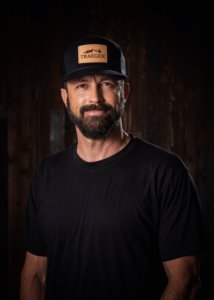 Jeremy Andrus is President & CEO of Traeger Grills, the original wood pellet grill brand that has taken the outdoor cooking world by storm. He and a financial partner acquired the company in 2014, transforming it from a small, regional, 26-year-old business into a multi-hundred-million-dollar brand that owns over 50% of the global wood pellet grill market.
Jeremy Andrus is President & CEO of Traeger Grills, the original wood pellet grill brand that has taken the outdoor cooking world by storm. He and a financial partner acquired the company in 2014, transforming it from a small, regional, 26-year-old business into a multi-hundred-million-dollar brand that owns over 50% of the global wood pellet grill market.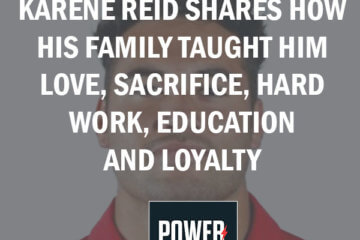
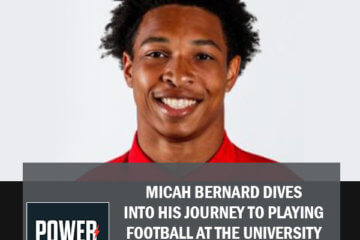
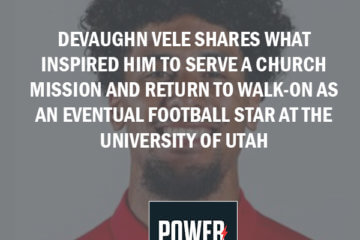
0 Comments